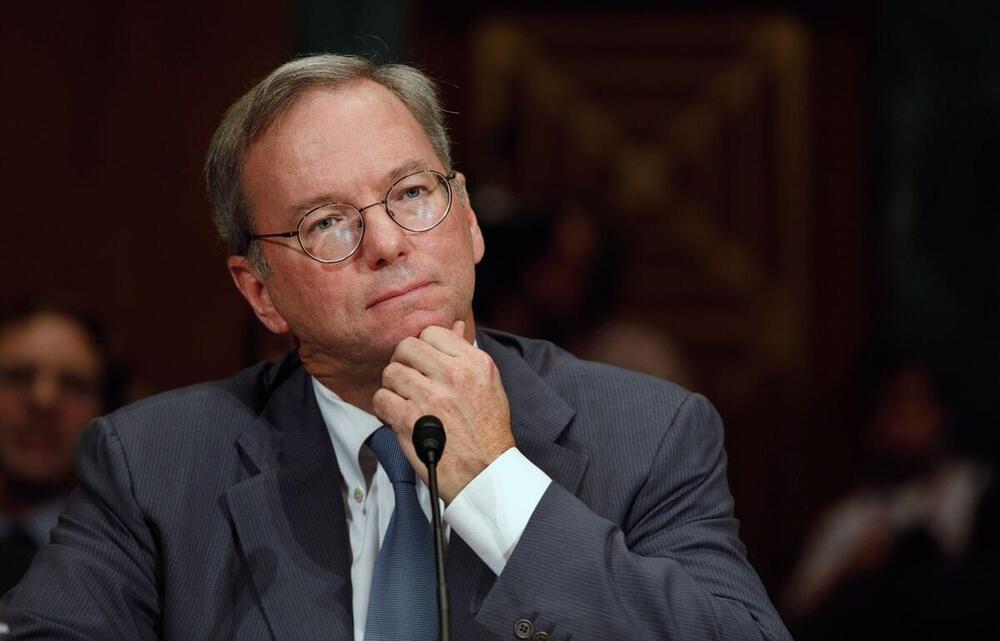In the six months since FLI published its open letter calling for a pause on giant AI experiments, we have seen overwhelming expert and public concern about the out-of-control AI arms race — but no slowdown. In this video, we call for U.S. lawmakers to step in, and explore the policy solutions necessary to steer this powerful technology to benefit humanity.
Category: policy – Page 20

AI and Emerging Tech Challenges Call for Collaborative Solutions
Artificial intelligence (AI) and emerging technologies have ushered in a new era, bringing unprecedented opportunities and challenges. In today’s rapidly evolving digital landscape, addressing these multifaceted challenges necessitates a collaborative effort spanning various sectors and calls for policy reforms while emphasizing global cooperation.
The rapid advancement of technologies, particularly artificial intelligence, has introduced transformative possibilities alongside a range of concerns. While AI holds the potential to revolutionize industries and enhance our daily lives, it also raises pressing issues related to data privacy, misinformation, and cybersecurity.
Experts have proposed adopting the “information environment” framework to address these multifaceted challenges. This framework comprises three essential components:
Harnessing AI & Longevity Science — A Blueprint for Lifespan Extension (Tina Woods)
Tina Woods, serving as Healthy Longevity Champion for the National Innovation Center for Aging, sets forth her vision for a blueprint for healthy longevity for all. Her emphasis is on reaping the “longevity dividend” and achieving five additional years of healthy life expectancy while reducing health and wellbeing inequality. Woods elaborates on the role of emerging technologies like AI, machine learning, and advanced data analysis in comprehending and influencing biological systems related to aging. She also underscores the crucial role of lifestyle changes and the consideration of socio-economic factors in increasing lifespan. The talk also explores the burgeoning field of emotion AI and its application in developing environments for better health outcomes, with a mention of “Longevity Cities,” starting with a trial in Newcastle. In closing, Woods mentions the development of a framework for incentivizing businesses through measurement of their contribution to health in three areas: workforce health, consumer health through products and services, and community health. Woods envisions a future where businesses impacting health negatively are disincentivized, and concludes with the hope that the UK’s healthy longevity innovation mission can harness longevity science and data innovation to improve life expectancy.
00:00:00 — Introduction, National Innovation Center for Aging.
00:00:56 — Discussion on stagnating life expectancy and UK’s life sciences vision.
00:03:50 — Technological breakthroughs (including AI) in analyzing biological systems.
00:06:22 — Understanding what maintains health & wellbeing.
00:08:30 — Hype, hope, important of purpose.
00:10:00 — Psychological aging and “brain capital.“
00:13:15 — Ageism — a barrier to progress in the field of aging.
00:15:46 — Health data, AI and wearables.
00:18:44 — Prevention is key, Health is an asset to invest in.
00:19:13 — Longevity Cities.
00:21:19 — Business for Health and industry incentives.
00:23:13 — Closing.
About the Speaker:
Tina Woods is a social entrepreneur and system architect with a focus on health innovation at the intersection of science, technology, policy, and investment. She is the Founder and CEO of Collider Health and Business for Health, driving systemic change for better health through these platforms. She contributes to key UK health strategies and initiatives, like UKRI’s Healthy Ageing Industrial Strategy, and served as the Healthy Longevity Champion for the National Innovation Centre for Ageing. Woods has made significant contributions to AI in health and care, co-leading the Quantum Healthy Longevity Innovation Mission and authoring the book, “Live Longer with AI.” Previously, she served as the director of the All Party Parliamentary Group for Longevity secretariat. Woods is also the CEO & Founder of Collider Science, a social enterprise that encourages young people’s interest in science and technology. She holds a degree in genetics from Cornell University and an MBA from Bayes Business School in London.
FOLLOW US
▀▀▀▀▀▀▀▀▀▀▀▀▀▀▀▀▀▀▀▀▀▀▀▀▀▀
https://www.lifespan.io.
https://www.facebook.com/lifespanio.
https://www.instagram.com/lifespan.io/
HOW CAN YOU SUPPORT US?
▀▀▀▀▀▀▀▀▀▀▀▀▀▀▀▀▀▀▀▀▀▀▀▀▀▀
Lifespan.io, a 501©(3) nonprofit organization.
► Support us with monthly donations by becoming a Lifespan Hero: https://www.lifespan.io/hero.
► Subscribe: https://www.youtube.com/user/LifespanIO
► Learn more, and help us: https://www.lifespan.io.
#Longevity #AI #Health #EARD

Unity wants to rebuild trust, but one Runtime Fee claim doesn’t add up
Last week, Unity rolled out a new look version of its controversial Runtime Fee in the wake of a seismic backlash from developers who felt the original policy represented an egregious act of betrayal for a myriad of reasons.
While plenty of fury was aimed at how the fee might impact developers’ finances, some of that anger stemmed from Unity’s inability to effectively communicate its new policy and provide clear answers to pertinent questions.
The dust is now supposedly settled, but here’s one more thing: why doesn’t Unity’s explanation for its shifting answers about the Runtime Fee in relation to subscription services hold up to scrutiny?

Meta’s new AI assistant trained on public Facebook and Instagram posts
MENLO PARK, California, Sept 28 (Reuters) — Meta Platforms (META.O) used public Facebook and Instagram posts to train parts of its new Meta AI virtual assistant, but excluded private posts shared only with family and friends in an effort to respect consumers’ privacy, the company’s top policy executive told Reuters in an interview.
Meta also did not use private chats on its messaging services as training data for the model and took steps to filter private details from public datasets used for training, said Meta President of Global Affairs Nick Clegg, speaking on the sidelines of the company’s annual Connect conference this week.
“We’ve tried to exclude datasets that have a heavy preponderance of personal information,” Clegg said, adding that the “vast majority” of the data used by Meta for training was publicly available.

Latest Videos News, Breaking Videos News, Videos News Headlines
By accepting cookies, you agree to the storing of cookies on your device to enhance site navigation, analyze site usage, and assist in our marketing efforts. Cookies SettingsRejectAccept Cookies × By clicking “Accept All Cookies”, you agree to the storing of cookies on your device and the processing of information obtained via those cookies (including about your preferences, device and online activity) by us and our commercial partners to enhance site navigation, personalise ads, analyze site usage, and assist in our marketing efforts. More information can be found in our Cookies and Privacy Policy. You can amend your cookie settings to reject non-essential cookies by clicking Cookie Settings below.

Google’s Former CEO Is Leveraging His $27 Billion Fortune to Shape AI Policy
Schmidt has become an indispensable adviser to government, even as some of his investments have won federal contracts.
Eric Schmidt isn’t shy about his wealth and power: The former Google CEO recently won an auction for a superyacht seized from a Russian oligarch, he owns a big stake in a secretive and successful hedge fund and he spent $15 million for the Manhattan penthouse featured in Oliver Stone’s sequel to Wall Street.
He has also leveraged his $27 billion fortune to build a powerful influence machine in Washington that’s allowed him to shape public policy to reflect his worldview and benefit the industries in which he’s deeply invested — most recently, artificial intelligence. When senators meet next week to hear from tech executives and experts about how AI should be regulated, Schmidt will be at the table.
🔴 Is Starship Hardware Ready for Flight? | Countdown to Launch LIVE
SpaceX has stacked Ship 25 atop Booster 9, and Elon Musk has tweeted ‘Ready for Launch’, NSF’s team examines Starship’s Hardware in this LIVE roundtable discussion.
In our new update show “Countdown to Launch” we will update you regularly on all things Starship flight 2. The goal is to answer all the questions you have about the upcoming launch campaign.
24/7 Coverage: nsf.live/starbase.
🔍 If you are interested in using footage from this video, please review our content use policy: https://www.nasaspaceflight.com/content-use-policy/
⚡ Become a member of NASASpaceflight’s channel for exclusive discord access, fast turnaround clips, and other exclusive benefits. Your support helps us continue our 24/7 coverage. ⚡
🔍 All content copyright to NSF. Not to be used elsewhere without explicit permission from NSF.

Elon Musk’s X tells users that it could use their posts to train AI models
X’s new privacy policy, which is due to come into effect on September 29, states that the company “may use the information we collect and publicly available information to help train our machine learning or artificial intelligence models for the purposes outlined in this policy.” This policy is not included in its previous terms, which are still posted online.
Musk responded to a post about this change on X, saying that it would only use publicly available information to train the AI and would not use “DMs or anything private.”
During a live audio session on X – formerly Twitter – in July, Elon Musk said that his AI startup, xAI, would use public data from his social media platform to train its AI models. Insider reached out to X for comment but didn’t immediately hear back. It is not clear how it will use the information from X and which AI models this relates to.

EASA Charts Future of Drone, AAM Industry With Proposed Framework
The FAA made a big splash when it unveiled its Innovate28 plan for advanced air mobility (AAM) operations with electric vertical takeoff and landing (eVTOL) aircraft at scale by 2028. But while Innovate28 is just that—a plan—the agency’s friend across the Atlantic is already proposing hard requirements for AAM certification, operations, and maintenance.
The European Union Aviation Safety Agency (EASA) on Thursday shared its final opinion on rules and regulations for eVTOL air taxis, drones, and other emerging aircraft with the European Commission. Now, the ball is in the Commission’s court as it determines whether to accept EASA’s policy recommendations.
Opinion No 03/2023 lays out a comprehensive regulatory framework for safe operations of new aircraft types. It introduces requirements for piloted electric air taxi operations, flight crew licensing, air traffic management, and standardized European rules of the air (SERA). The proposal also suggests a criteria and process for the certification and maintenance of remotely piloted drones.